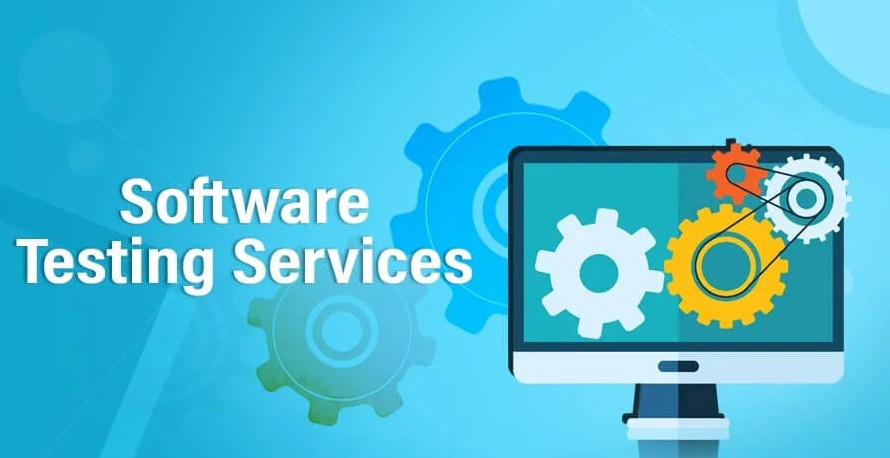Trends Shaping the Future of Software Testing Services in 2025
COMPANY PROFILE

Trends Shaping the Future of Software Testing Services in 2025
Overview
As technology advances at an unprecedented pace, the landscape of software testing services continues to evolve. In 2025, businesses demand faster, more reliable, and intelligent testing solutions to keep up with rapid development cycles and complex applications. The future of software testing is being shaped by emerging trends that emphasize automation, AI integration, and a shift-left approach, among others. Companies like Geniusee are at the forefront, delivering innovative software testing services that align with these trends to ensure quality and agility in software delivery. The Rise of AI-Driven Testing Artificial Intelligence (AI) is transforming software testing by automating repetitive tasks and enhancing test accuracy. AI-powered tools can generate test cases, predict defect-prone areas, and analyze test results faster than traditional methods. This reduces manual effort and accelerates testing cycles. In 2025, AI-driven testing will become more sophisticated, incorporating machine learning to adapt to application changes dynamically. This means test scripts can self-heal when minor UI or code changes occur, reducing maintenance overhead. Geniusee integrates AI capabilities into their software testing services to help clients achieve continuous testing with minimal human intervention. Increased Adoption of Continuous Testing in DevOps The DevOps culture, which promotes collaboration between development and operations, relies heavily on continuous testing to maintain software quality throughout the development lifecycle. Continuous testing involves running automated tests early and often, enabling faster feedback and quicker releases. In 2025, continuous testing will be a standard practice supported by advanced automation frameworks and cloud-based testing environments. This approach ensures that defects are detected and resolved in real time, improving product reliability and customer satisfaction. Software testing services providers like Geniusee are helping organizations embed continuous testing into their DevOps pipelines to streamline delivery. Expansion of Test Automation Beyond Functional Testing While automation has traditionally focused on functional testing, the future points toward broader automation coverage. Performance testing, security testing, and usability testing are increasingly automated to provide comprehensive quality assurance. Automated performance testing simulates real-world usage to identify bottlenecks before deployment. Security testing automation helps detect vulnerabilities continuously, crucial for protecting applications against cyber threats. Usability testing automation leverages AI to analyze user interactions and improve user experience. Geniusee’s software testing services embrace this holistic automation approach, ensuring that all aspects of software quality are addressed efficiently. Emphasis on Shift-Left and Shift-Right Testing Strategies Shift-left testing involves integrating testing activities early in the software development process, such as during requirements gathering and coding. This proactive approach helps catch defects sooner and reduces costly fixes later. Conversely, shift-right testing focuses on validating software in production environments through techniques like canary releases, A/B testing, and monitoring user behavior. In 2025, combining shift-left and shift-right strategies will become essential for delivering high-quality software. This dual approach ensures continuous validation from development through production, minimizing risks and improving user satisfaction. Geniusee supports clients in implementing these strategies within their software testing services to enhance quality assurance. Growing Importance of Cloud-Based Testing Solutions Cloud computing enables scalable, flexible, and cost-effective testing environments. Cloud-based testing platforms allow teams to simulate diverse user conditions, test across multiple devices, and collaborate seamlessly regardless of location. In 2025, cloud testing will dominate as organizations seek to reduce infrastructure costs and accelerate testing cycles. Integration with cloud CI/CD tools will facilitate automated testing workflows, enabling faster time-to-market. Geniusee leverages cloud technologies in their software testing services to provide clients with scalable and efficient testing solutions tailored to their needs. Focus on Testing for Emerging Technologies Emerging technologies such as IoT, blockchain, and augmented reality introduce new testing challenges due to their complexity and novelty. Ensuring functionality, security, and performance in these domains requires specialized testing approaches. In 2025, software testing services will increasingly incorporate expertise in these areas, using advanced tools and frameworks designed for emerging tech. This ensures that innovative applications meet quality standards and regulatory requirements. Geniusee’s multidisciplinary teams stay updated with these trends, offering testing services that address the unique demands of cutting-edge technologies. Enhanced Collaboration and Communication Tools Effective collaboration between developers, testers, and business stakeholders is critical for successful testing outcomes. Modern software testing services employ integrated communication platforms, real-time dashboards, and AI-driven analytics to foster transparency and informed decision-making. In 2025, these tools will become more intelligent and user-friendly, enabling faster issue resolution and continuous improvement. Geniusee incorporates such collaborative tools in their testing workflows to enhance client engagement and project visibility. The future of software testing services is being shaped by innovations that prioritize speed, intelligence, and comprehensive quality assurance. By embracing AI, continuous testing, cloud solutions, and emerging technology expertise, providers like Geniusee are helping businesses navigate the complexities of modern software development and deliver exceptional products in 2025 and beyond.Actions
Primary Address
Bulofsh. q3, , MN, Italy 56523
Social Media
Key Facts
| Services: Ecommerce PPC | |
|
Founded:
Revenue:
Firm Size:
No of Clients:
|
|
| Client Name: | |
|
Key People:
|
